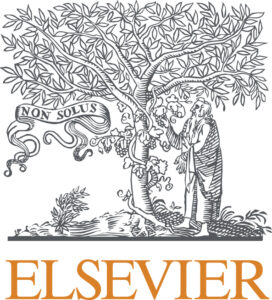




The Workshops will be held on December 11 and 12, 13:00-17:00 UTC.
Participants should receive the Zoom link and password from the organizer of the workshops by December 9.
In case of any issue, please contact the workshop chair Na Li ([email protected])

The CDC 2021 is offering 7 two-day and 4 one-day workshops addressing current and future topics in control systems from experts from academia, research institutes, and industry. The workshops are fully on-line and scheduled for December 11-12 (Sat-Sun), 2021. For the convenience of the attendees, each workshop runs only 4 hours per day.
All workshop participants are required to register. See the Registration webpage for fees and details. The workshops will be offered based on viable attendance. The 60th CDC reserves the right to cancel non-viable workshops. In the event of a cancellation, the workshop fees will be refunded in full.
Questions can be directed to the Workshop Chair, Na Li.
Organizer: Rong Su (Nanyang Technological University)
Time: 13.00-17.00 (UTC), Dec 11 & 12 (Saturday & Sunday)
Abstract: Resilience has emerged as a property of major interest for the design and analysis of a complex system. It describes the system ability to continue providing its designed services or functions, even after disruptive changes in the system, caused either by faults, or other naturally occurring phenomena, or by malicious actions. Resilience has been enjoying a spotlight in many different fields, including the Discrete Event Systems (DES) community. This workshop aims to report recent research achievements related to resilience of DES and to identify relevant challenges. It will focus on two main themes: cyber security and information confidentiality, which include synthesis of attack strategies, analysis and control enforcement of opacity, and privacy-preserving control for requirement satisfaction, and resilient state estimation and fault diagnosis under attacks, which discuss latest state estimation and fault diagnosis methods for discrete-event systems that are affected by malicious attacks on observation channels
Webpage: https://intelligentsystemseee.ntu.edu.sg/cpisrg/SCPS/CDC21.html#
Organizers: Valentina Breschi (Politecnico di Milano), Federico Bianchi (Politecnico di Milano)
Time: 13.00-17.00 (UTC), Dec 11 & 12 (Saturday & Sunday)
Abstract: Motivated by the ever growing interest towards data-based solutions within almost all engineering fields, we propose a one-day workshop to bridge between classical system identification techniques and new trends emerging within the control, robotics and machine learning communities. The workshop will focus on recent strategies that combine the informative power of data with priors on the system/parameters to be learned, that can span from physical insights to human inputs. To this purpose, we bring together some of the main voices working at the frontier between control and machine learning, coming from leading institutions in Europe and America. The target audience comprises graduate level control engineers, as well as researchers, that are interested in developing aware learning approaches and/or applying them to handle practical control problems. The workshop talks cover a wide range of techniques and domains by showing possible applications and challenges that have still to be faced, while offering new insights on this rapidly changing field.
Webpage: https://sites.google.com/view/cdc2021workshop-aware-learning/
Organizers: Michael Chertkov (The University of Arizona), Abhishek Halder (University of California, Santa Cruz), Mert Korkali (Lawrence Livermore National Laboratory)
Time: 13.00-17.00 (UTC), Dec 11 & 12 (Saturday & Sunday)
Abstract: With the increasing penetration of stochastic renewables, large scale deployment of sensing devices, and volatility of the electricity markets, the need for managing uncertainties in modern power system dynamics has come to fore. Several methodological and computational strides are being made to address these challenges. This workshop will bring together researchers across academia, national laboratories and industries, designing theoretical and computational tools for managing uncertainties in power system dynamics, and demonstrate how ideas from systems-control and machine learning are coming together ensuring safe and high-performance dynamical operation of the modern power systems. The workshop is expected to attract a diverse audience from the systems-control and power engineering community.
Webpage: https://cdc2021-uncertainty-mgmt-power-syst-dyn.github.io/
Organizers: Christophe Prieur (CNRS, Univ. Grenoble Alpes, France), Andrea Serrani (The Ohio State University, USA), Claudia Califano (Universita di Roma La Sapienza, Italy)
Abstract: This workshop is dedicated to all educational aspects of nonlinear control. It aims to give the opportunity to share with all the control community educational tools, materials and supports for instructors in nonlinear control theory and its applications, at the advanced undergraduate and graduate levels, as well as to share new ideas in the educational field.
Webpage: https://sites.google.com/view/education-non-linear-cdc21/home
Organizers: Giacomo Como (Politecnico di Torino, Italy and Lund University, Sweden), Florian Dörfler (ETH Zurich), Dario Paccagnan (Imperial College London), Francesca Parise (Cornell University), Marco Pavone (NVIDIA and Stanford University), Adam Wierman (California Institute of Technology)
Time: 13.00-17.00 (UTC), Dec 11 & 12 (Saturday & Sunday)
Abstract: Future cities promise to be wonders of seamless cyber-human interaction where the physical world blends with the digital realms to offer innovative solutions to the biggest challenges of our times, such as climate change and sustainability issues. Transportation and energy distribution systems play a pivotal role in this context ensuring the development of green and reliable cities, as well as enhancing productivity and economic growth. For energy distribution systems, a solution to carbon emission is offered by the possibility to incorporate a larger fraction of renewable sources. For transportation systems, novel mobility paradigms including autonomous mobility and on-demand services have been proposed to realize sustainable transportation in urban areas. While incredibly promising, the successful adoption of these technologies hinges on our ability to incorporate them safely, robustly and seamlessly with the current infrastructure. While the advent of big data, machine learning, sharing economies, and ubiquitous internet access has provided us with remarkable opportunities to tackle these challenges, there is a need for the development of new mathematical models, control theory, and automation techniques allowing us to harvest these resources for the development of safe and reliable autonomous cities. We believe this is perfect timing to bring these challenges to the attention of the broad audience of control theorists, making CDC a perfect venue. We organized the workshop by bringing together researchers that work on these areas using a variety of approaches pertaining to fields such as control theory, operations research, transportation and computer science. The aim is to give a general introduction to different techniques for control of autonomous cities, as well as present the latest results on various emerging topics such as traffic modelling and regulation, autonomous mobility and fleet management, power grid modelling and control, demand-response methods, energy markets and on-demand services.
Webpage: https://sites.google.com/view/cdc21workshop-autonomous-city
Organizers: Silvia Mastellone (FHNW University of Applied Sciences and Arts), Dennice Gayme (Johns Hopkins University), Afef Fekih (University of Louisiana at Lafayette)
Time: 13.00-17.00 (UTC), Dec 11 & 12 (Saturday & Sunday)
Abstract: Objective: Identify best practices that contribute to (i) shape research and work environments where diversity and research excellence can thrive; (ii) promote the image of Automatic Control as a field in which talented students and researchers want to study, work and contribute to the field growth. Expected outcomes: (i) Assess the present situation on diversity in the field of Automatic Control and current initiatives; (ii) identify bottlenecks in defining diverse study and research environment; (iii) information and best practices on how to reach a sustainable integration of diversity
Webpage: https://2021.ieeecdc.org/diversity-and-inclusion-in-control-workshop/
Organizers: Philip E. Pare (Purdue University), Giulia Giordano (University of Trento), Ji Liu (Stony Brook University), Emma Tegling (Lund University), Henrik Sandberg (KTH Royal Institute of Technology), Carolyn L. Beck (University of Illinois, Urbana), Karl H. Johansson (KTH Royal Institute of Technology)
Time: 13.00-17.00 (UTC), Dec 11 & 12 (Saturday & Sunday)
Abstract: In December 2019, a novel coronavirus (SARS-CoV-2) was detected in Wuhan, China, which induces a severe and potentially fatal respiratory syndrome termed COVID-19. The virus death rate does not seem to be particularly high, relative to SARS and Ebola, however, it appears to be much more contagious. This combination has enabled the virus to cause a worldwide pandemic, as exposed individuals with little to no symptoms spread the virus, affecting much of the population, including those most vulnerable. Efforts to reduce the spread via mask wearing, school closures, work-from-home guidelines, transportation restriction, and social distancing are being employed at unprecedented rates and with varying levels of success. The dynamics of the virus spread as a function of the underlying network, incubation period, susceptibility and healing rates are the driving force behind this pandemic. Understanding the dynamics enables the design of effective suppression and mitigation techniques. These techniques can be implemented via edge cutting in the network, reducing susceptibility by good hygiene practices, and healing can be boosted by therapeutic treatment. Developing provable methods that mitigate or eradicate the virus based on modeling approaches is of great importance. This workshop will bring together leaders in this area from all over the world to discuss how to battle this and future epidemics. Specifically, the workshop will cover both theory and practice in two focus sessions, respectively. Classical control and modern learning techniques will be studied in epidemics modeling, analysis, and control, and meanwhile, transdisciplinary teams in Europe, Asia, North and South America will present their ongoing battles against COVID-19.
Webpage: https://sites.google.com/view/covid-19-focus-workshop
Organizers: YangQuan Chen (University of California, Merced), Jairo Viola (University of California, Merced,), Pawel D. Domanski (Warsaw University of Technology), Jing Wang (North China University of Technology (NCUT)
Time: 13.00-17.00 (UTC), Dec 12 (Sunday)
Abstract: Experienced control engineers and researchers agree that before designing a controller, we need to ask two questions 1) “What do we have/know?” and 2) “What do we want?” and after we have designed a controller, we also need to ask two questions 1) “How optimal?” and 2) “How robust?”. With the emerging wave of “Digital Transformation” such as Industry 4.0, I promote asking the third question: “How smart?”. This talk introduces a new frontier for control engineering: Smart Control Engineering (SCE), using Digital Twins (DT) as the enabler technology combined with IAI (industrial artificial intelligence) and breaking technologies like Deep Learning, AI, Data Analytics, Big Data, and edge computing. For SCE, the concept of “smartness” follows the notion of the US NSF program on S&AS (smart and autonomous systems) based on the following attributes 1) Taskable; 2) Cognitive; 3) Reflective; 4) Ethical; 5) Knowledge-rich. It means that a smart control system can learn from past actions and induced errors (resilience), discover hidden patterns and anomalous behaviors at multiple time scales and reach the desired closed-loop and operation specifications. This workshop will present a case study to illustrate the SCE fundamentals enabled by DT using IAI for process control engineering. This tutorial workshop prepares CDC2021 our audience with
Organizers: Konstantinos Gatsis (University of Oxford), Vijay Gupta (University of Notre Dame)
Time: 13.00-17.00 (UTC), Dec 12 (Sunday)
Abstract: Advances in faster and more reliable networking and computing infrastructure, as well as their wider availability, have been driving cyber-physical systems to become increasingly networked. The control systems community has been leading these efforts, with fundamental results in topics such as distributed optimization and control, networked control, and multi-agent systems being developed. Concurrently, there is a revolution in machine learning techniques that allow extraction of useful information and models from data. Given that it is difficult to obtain accurate models for large scale networked cyber-physical systems, over the last years it has been recognized that networked cyber-physical systems will become increasingly data-driven. A natural question then is whether networked cyber-physical system control can exploit developments in machine learning algorithms, and concomitantly, drive advances in machine learning. The purpose of this workshop is to explore the fundamental research questions that arise at the intersection of these areas.
Webpage: https://kgatsis.github.io/CDC2021_distributed_learning_workshop/
Organizers: Christian Ebenbauer (RWTH Aachen University, Germany), Carsten W. Scherer (University of Stuttgart, Germany)
Time: 13.00-17.00 (UTC), Dec 12 (Sunday)
Abstract: Over the past decade, various research activities in the area of analysis and synthesis of optimization algorithms using ideas and concepts from control theory have been initialized. These activities are motivated by the basic fact that many optimization algorithms are dynamical systems, where tools from control theory can be used to analyze and synthesize algorithms. A further motivation is the increasing use of online optimization in feedback algorithms due to the high availability of online computing power in all kinds of systems. Prominent examples of such algorithms are receding horizon schemes or extremum control. It can be expected that artificial intelligence techniques and learning algorithms based on large data sets will further accelerate this development. For this reason, the dynamics of optimization algorithms play a key role of future control and AI systems which needs to be taken into account in a fundamental fashion when analyzing or designing complex control systems. The goals of this workshop are i) to give an introduction and an overview of these research activities, ii) to present recent results and iii) to discuss future challenges and developments
Organizers: Nikolai Matni (University of Pennsylvania), Christine Allen-Blanchette (Princeton University), George J. Pappas (University of Pennsylvania)
Time: 13.00-17.00 (UTC), Dec 12 (Sunday)
Abstract: Deep neural networks (DNNs) are increasingly being used to model or approximate all components of traditional feedback control loops, including the plant, sensors, actuators, controllers, and in the case of so-called “end-to-end” architectures, the entire feedback loop itself! The excitement surrounding these developments has been palpable, expanding the scope of control theoretic techniques to a much wider range of systems and scenarios, including perception-based control, agile robotics, and autonomous driving and racing. However, until recently, what has been lacking has been a principled theoretical foundation that also allows for strong guarantees of stability, robustness, and safety to be provided when such deep learning-enabled components are introduced into the feedback loop. Further, existing results in this area are relatively inaccessible to a typical first or second year graduate student in control theory, as they require both sophisticated mathematical tools not typically included in a control theorist’s training (e.g., high-dimensional statistics and learning theory), as well as a breadth of multi-disciplinary knowledge from not only control theory, but also machine learning, optimization, and computer vision. The objective of this workshop is to begin fostering a new interdisciplinary community and dialogue across the aforementioned disciplines of control theory, machine learning (ML), optimization, and computer vision, with the ultimate goal of making the important new results on the safety of deep learning enabled control systems more broadly accessible.
Webpage: https://rdl4control.github.io/





© Copyright 2021 IEEE – All rights reserved. Use of this website signifies your agreement to the IEEE Terms and Conditions.
A not-for-profit organization, IEEE is the world’s largest technical professional organization dedicated to advancing technology for the benefit of humanity.
This site is created, maintained, and managed by Conference Catalysts, LLC. Please feel free to contact us for any assistance.
IEEE websites place cookies on your device to give you the best user experience. By using our websites, you agree to the placement of these cookies. To learn more, read our Privacy Policy.